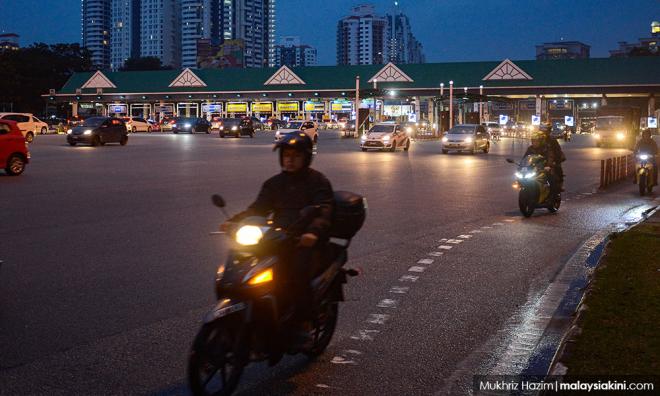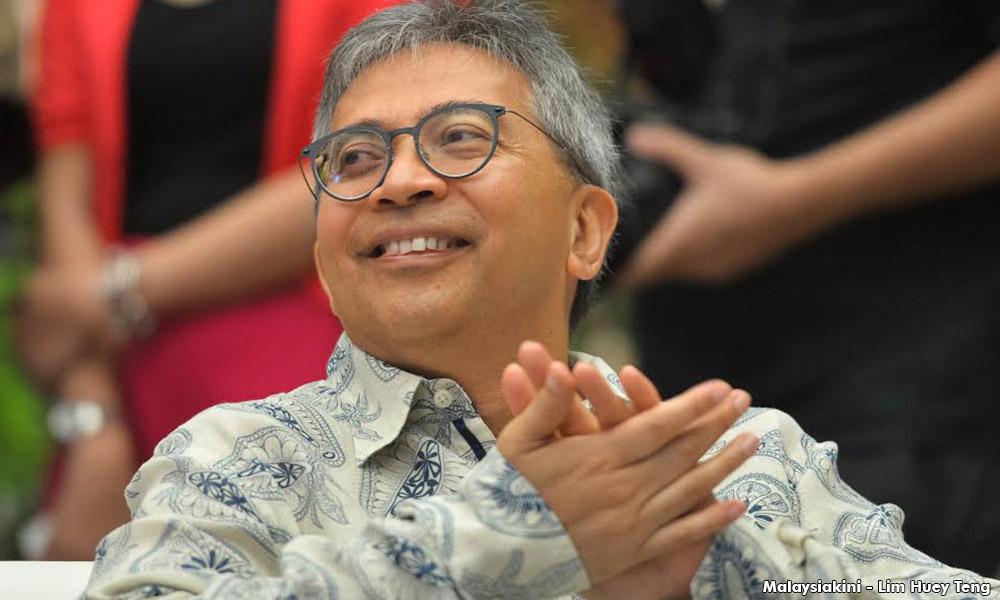
QUESTION TIME | A newly revised offer for PLUS, effectively RM38.3 billion including debt, to improve marginally on what looked like the best offer till then for highway concessionaire PLUS Malaysia Bhd, has highlighted that earlier offers may have been grossly undervalued. Which is not to say that the new offers are fair - not yet.
There is simply not enough public information to indicate that the offers are strictly comparable. In valuing a toll concession which won’t expire until 2038, or 18 years from now, even a small difference in details can translate to a massive difference in terms of the total value.
It becomes more complex when some of them are asking for more than what is already on the table. There are some who still want government guarantees on the loan to continue, without any doubt whatsoever a direct government subsidy as it underwrites risk while forgoing profit.
Others want an extension of the toll contract by 20 years, more than doubling the loan concession period. That’s basically a more than doubling of the value of the toll concession, which is close to RM40 billion going by current offers.
Even if this is discounted back to its present value, it is likely to be at least half that or RM20 billion, a colossal sum of money which has not been taken into account in their offer for PLUS.
It is also very curious that the presentations of offers are now being made to the Ministry of Works and Public Amenities Malaysia under Baru Bian, when PLUS is 51 percent owned by government-owned Khazanah Nasional Bhd and 49 percent by the Employees Provident Fund (EPF).
The CEO of Khazanah Nasional has clearly indicated that they have not received any attractive offers ,while the EPF CEO has said that the EPF will evaluate offers and accept them only if they are beneficial to the fund, to which he owes a fiduciary duty.

One interesting part of developments was when the person who started PLUS, Halim Saad (above), threw his hat in the ring, together with his partner Wong Gian Kui. Halim described Wong in his letter to Baru Bian as a prominent businessman who sits on the board of Insas Bhd, Inari Amerton Bhd and Ho Hup Construction Company Bhd.
The letter rambles, asking questions and pointing out facts that are not directly relevant before finally making an offer.
“I would like to make an offer to acquire PMB (PLUS) for RM5.2 billion. The new PMB shall offer a 25 percent discount on toll rates. The concession period shall remain the same and shall end in December 2038.”
That was by far the best offer for PLUS. But now Widad Business Group (WBG) is proposing to acquire 100 percent equity interest in PLUS Malaysia Berhad for RM5.3 billion in cash, upping its earlier revised offer of RM3 billion by a massive 77 percent. This includes, in addition, the compensation waiver of RM3.038 billion and debt assumption of RM30 billion, bringing the total enterprise value of the offer to RM38.3 billion.
That’s a mere RM100 million more than Halim’s offer - but hang on, is there still the extension of the PLUS concession by a further 20 years? We don’t know.
Halim, a close associate of Prime Minister Dr Mahathir Mohamad’s trusted adviser Daim Zainuddin, is a known entity who has been involved in the past in the UEM/Renong group, which included PLUS. He has repeatedly said that he was unfairly ousted out of UEM/Renong/PLUS, and maintains that there was no need for the government to have mounted a rescue operation. He even sued the government - unsuccessfully - for some RM1.6 billion.

WBG group, an integrated facility management and construction conglomerate, also owns 65 percent of Widad Group Berhad and 63 percent of Dataprep Holdings Berhad, which are listed on Bursa Malaysia. Interestingly, Dataprep was once majority-owned by Mahathir’s son Mirzan (above) before it was sold to the late casino king of Genting fame Lim Goh Tong’s son Chee Wah in 2000, who then sold his stake to WBG at a substantial discount to the market price in 2017.
The other two bidders are Mahathir’s close associate Abu Sahid Mohamed, through Maju Holdings, and Hong Kong private fund RRJ Capital owned by the Ong brothers - Richard and Charles - of Malaysia, one of whom has done deals before with Daim, as well as with Temasek Holdings, Singapore’s sovereign wealth fund.

Thus, there is quite a motley crew bidding for PLUS with Halim probably in the lead in terms of attractiveness. But is that attractive enough?
If the private sector can do all this - pay billions for PLUS, and still come up on top and make sustainable profits from this, does it not stand to reason that Khazanah Nasional and EPF should just keep their stakes?
The government is surely not hard-up for a miserable RM5.3 billion when it is throwing RM44 billion into the construction of an unviable East Coast Rail Link project which will be financed by a loan of 85 percent of the project cost, or a massive RM37.4 billion from China.
On top of that, there is not likely to be any debt reduction because they are guaranteed by the government anyway. If the debts associated with PLUS were not reduced, it does not matter anyway because PLUS produces enough income to service the debts. There is no danger, so why the hurry to sell previous assets?
In these circumstances of multiple offers for PLUS, what should the government do to ensure that all transactions remain at arm’s length and are properly dealt with instead of leaving it to the prime minister?
Just do what will be statutorily required if PLUS were a listed company with multiple shareholders. What would the board do? It will have to look at all the offers, make an informed decision and advise all shareholders accordingly.
This will mean that independent investment bank advisers should be appointed to assess all offers and make their recommendations, following which the board will make recommendations to the shareholders. The independent advice will be disclosed to the public.
If the government does this and allows the PLUS board to assess the offers through independent advice and make their recommendations to the shareholders, and if the advice and recommendations are made public, and the recommendations are followed by government-owned Khazanah Nasional, and EPF exercises without pressure its discretion, then the due process would have been followed.
That’s a simple process to follow, as has been established by current corporate governance measures. Otherwise, there will be issues and charges of cronyism.
P Gunasegaram, editor-in-chief of Focus Malaysia, says the simple solution to a complex problem is to let independent experts of integrity handle it without pressure, never politicians who are keen to dish out patronage. - Mkini


No comments:
Post a Comment
Note: Only a member of this blog may post a comment.